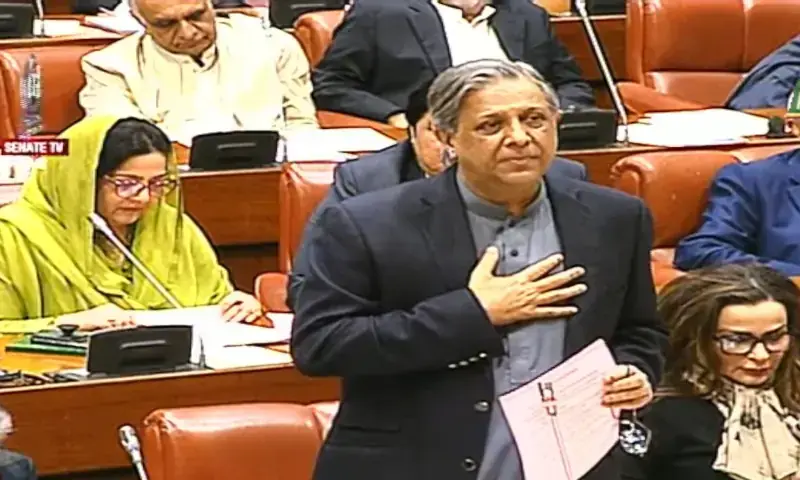Senate Chairman Yousaf Raza Gillani on Saturday referred the 27th Constitutional Amendment Bill to the Standing Committee on Law and Justice for detailed review, marking the next phase in the government’s plan to reform key constitutional structures. The Senate refers 27th Constitutional Amendment Bill to Law and Justice Committee for review shortly after it was tabled by Law Minister Azam Nazeer Tarar.
During the Senate session, Law Minister Tarar requested suspension of the question hour and other routine proceedings to brief members on the bill, which proposes sweeping changes to 49 clauses across five major areas of governance and law. After the presentation, Chairman Gillani directed the committee to engage members of the National Assembly’s Law and Justice Committee as part of a joint deliberation process, citing the importance of consensus on constitutional matters. He emphasized that both committees may hold joint sessions and present a comprehensive report to the House.
However, the session turned tense as PTI Senator Ali Zafar objected to debating the amendment in the absence of a formally appointed opposition leader. He accused the government of rushing the process, saying, “We cannot debate something we haven’t even read.” He noted that opposition lawmakers had only received the draft earlier in the day, leaving no time for detailed study.
Explaining the bill, Law Minister Tarar said it covers five key domains — including judiciary reforms, defence command restructuring, and provincial governance adjustments. He recalled that the 2006 Charter of Democracy had envisioned a Federal Constitutional Court to handle constitutional disputes, while regular courts would continue dealing with other cases. Although “constitutional benches” were experimented with after the 26th Amendment, Tarar noted they consumed nearly 40 percent of court time despite hearing only a fraction of cases. The new amendment, he said, proposes the formal establishment of a Federal Constitutional Court through Parliament.
Addressing the issue of judicial transfers, Tarar highlighted that the 1973 Constitution allowed the president to transfer judges on the prime minister’s advice for up to two years without consent. This was later reversed under the 18th Amendment, requiring judges’ consent. The current proposal, however, removes the prime minister’s advisory role and assigns transfer authority to the Judicial Commission of Pakistan, with a safeguard ensuring that no judge senior to a chief justice can be transferred.
On governance reforms, the law minister proposed increasing the size of provincial cabinets from 11 percent to 13 percent of assembly seats, along with raising the number of advisers from five to seven. He also introduced a clause to ensure Senate elections are held on time, preventing delays like those seen in Khyber Pakhtunkhwa.
Tarar clarified that Article 243, which concerns control of the armed forces, has been updated to reflect structural adjustments. He stated that Army Chief General Asim Munir has been granted the honorary title of Field Marshal — a lifelong designation, not a functional rank — adding that such titles can only be revoked by Parliament. He further revealed that from November 27, 2025, the position of Chairman Joint Chiefs of Staff Committee (CJCSC) would be abolished after the incumbent’s term, with the army chief assuming the new title of Chief of Defence Forces.
Following his briefing, the proposed text of the amendment was officially presented and referred to the Standing Committee on Law and Justice. Senate Chairman Gillani instructed the committee to invite the National Assembly’s law and justice members for joint deliberations. A joint committee session was summoned later the same day to begin formal discussions.
Majlis Wahdat-e-Muslimeen (MWM) Senator Allama Raja Nasir Abbas raised concerns about the speed of the legislative process, arguing that constitutional changes must be based on national consensus. “Why the rush? Even if it takes months, amendments should come through agreement,” he said, warning that hasty changes could make the Constitution controversial.
Deputy Prime Minister Ishaq Dar addressed the Senate, confirming that detailed debate would take place in the committee stage. He also clarified that appointing the opposition leader in the Senate is the prerogative of the chairman, urging that the process be completed soon to facilitate smooth deliberations.

